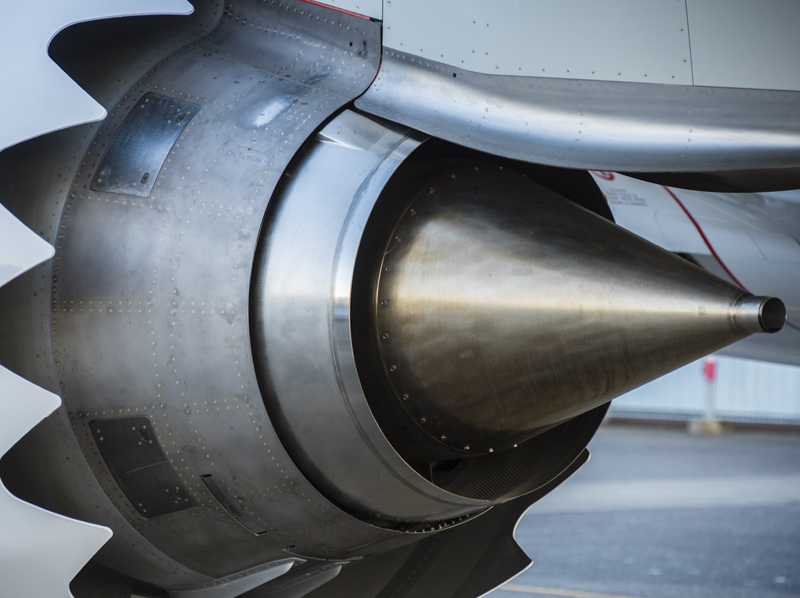During the year, we closed $3bn of new transactions with leading airline credits. That equates to 28% of our pre-COVID portfolio and includes $1.1bn of transactions in North America. We executed transactions on a global basis with well-known airline counterparties including EasyJet, Wizz, Turkish Airlines, Southwest, Delta, United, and Peach.
Without doubt, the COVID-19 pandemic has been the biggest shock to the global economy and the aviation industry experienced in modern times. The scale and impact have been unprecedented and caused significant distortions for financial markets, aircraft lessors, OEMs, and airlines.
Against that backdrop, SMBC Aviation Capital has performed well to remain profitable, with a number of factors helping us to achieve that positive outcome.
In the first instance, there was the response of our people who all pulled together despite the challenges of working remotely. They worked diligently and delivered for our customers and for the company.
Another key factor was the continued unwavering support of our shareholders. We were able to take a long-term view because we had prepared ourselves for an anticipated downturn in the industry before entering the crisis. We had already bolstered our balance sheet and had the necessary liquidity in place.
This included direct financial support from our shareholders and having access to other sources of funding, if required, including the Japan Bank for International Cooperation (JBIC). That placed us in a strong position and allowed us to take advantage of opportunities in the market. The opportunities which manifested themselves were largely attractive sale and leaseback deals with $3bn in sale and leaseback business transacted, delivering better returns than would have been achieved in the market prior to COVID-19. Indeed, we had $4.9bn in available liquidity at end of the financial year.
Our focus on primarily narrow-body aircraft which are core to our customer’s fleets meant that we had restructurings rather than many aircraft repossessions during the financial year, which also allowed us to maintain profitability.
We have also been prudent in our approach and took a number of steps in anticipation of the temporary reduced demand for new order aircraft. These included the reprofiling of our order books with manufacturers, as we deferred aircraft orders with both Boeing and Airbus through the year.
Since year end, we have seen increased demand for new build aircraft and we have signed a deal to purchase 14 aircraft from Boeing at attractive prices.

Since year end, we have seen increased demand for new build aircraft and we have signed a deal to purchase 14 aircraft from Boeing at attractive prices. We are now focussed on our next financial year and beyond and are confident of a recovery in the industry which will be initially led by the short haul and low-cost sector, which complements our portfolio which is over 80% narrow-body aircraft. We believe we will start to see a reasonable uptick in demand for aircraft in 2021 and into 2022.
Lessors typically acquire aircraft from one of three channels, namely: (i) the direct purchase of aircraft from OEMs, (ii) sale and leasebacks with airlines and (iii) purchases from existing lessors. We have typically used all of those channels during the past 20 years with different levels of emphasis at different points in the market cycle.
The disrupted market conditions have allowed us in one month to order new aircraft; purchase aircraft from other lessors while concluding a number of sale and leaseback agreements directly with airlines. This was the first time we have used all three channels in such a tight timeframe and demonstrates our ability to identify and execute on different opportunities as they arise.

The other significant area of activity for us during the year was working with our airline customers that were dealing with severe financial difficulties. We worked closely with them to help them get through the crisis and we are pleased that we were in a position to help some of our longest standing and most trusted partners.
From our own point of view our primary focus was on cash flow collection and this improved steadily over the year with collection rates from rental deferrals rising to 99% by year end.
During the year, the average age of our portfolio reduced to four years with an average lease term remaining of 7.3 years. We are in a period of transition to the most environmentally friendly aircraft with 57% of the portfolio comprised of the newest technology available. We see this rising to above 80% newest technology aircraft over the next three years as part of our strategy.
That is all the more important in a world where environmental consciousness is rising to new levels. SMBC Aviation Capital wants to be at the vanguard of leading the change to new, more environmentally friendly aircraft. We already have one of the youngest and most fuel-efficient portfolios in our industry and we ultimately want to get to a carbon neutral position.
Like the broader industry, we are on a journey towards achieving that goal and we are initially working with airlines in areas like carbon offsets, we are also playing our part supporting the development of more sustainable aviation fuels and will be working with the OEMs on the development and financing of lower carbon emitting aircraft.
We already have one of the youngest and most fuel-efficient portfolios in our industry and we ultimately want to get to a carbon neutral position.

COVID-19 also highlighted the importance of the communities in which we operate and where our customers operate. We have continued to support those communities during the year and as travel increases again it will be even more important to continue to play a role in those communities.
Along with my role as Chief Financial Officer, I also have the privilege of sponsoring our equality, diversity and inclusion (EDI) initiative. EDI is much more embedded in people’s consciousness now and we have made great progress on that during the year. Our EDI committee, MOSAIC, hosted a number of virtual events and training sessions through the year on unconscious bias as well as celebrating our cultural diversity by publishing a book for our employees which included snapshots of the many cultures and religions that make up SMBC Aviation Capital. We also celebrated Pride this year, hosting a number of sessions on themes of Support & Awareness while introducing the concept of Allyship to create a more comfortable, supportive & accepting place to work for all. We recognise that we have more to do but we are making strides as a business that champions equality, diversity and inclusion.
Thanks to the efforts of everyone involved – our employees, our board, our shareholders, our suppliers and our customers – the 2021 financial year finished in a better position than it may well have been given the industry background. We have succeeded in positioning the business strongly for the future during an unprecedented and challenging year.
Barry Flannery
Chief Financial Officer